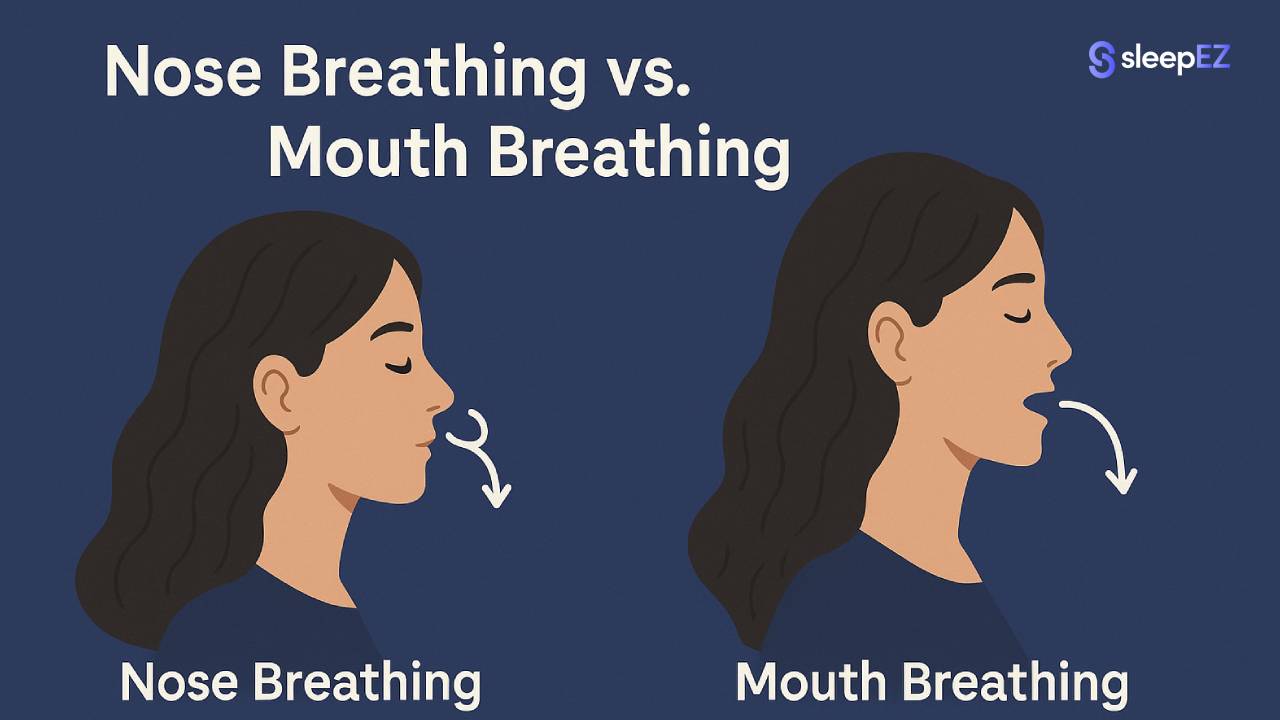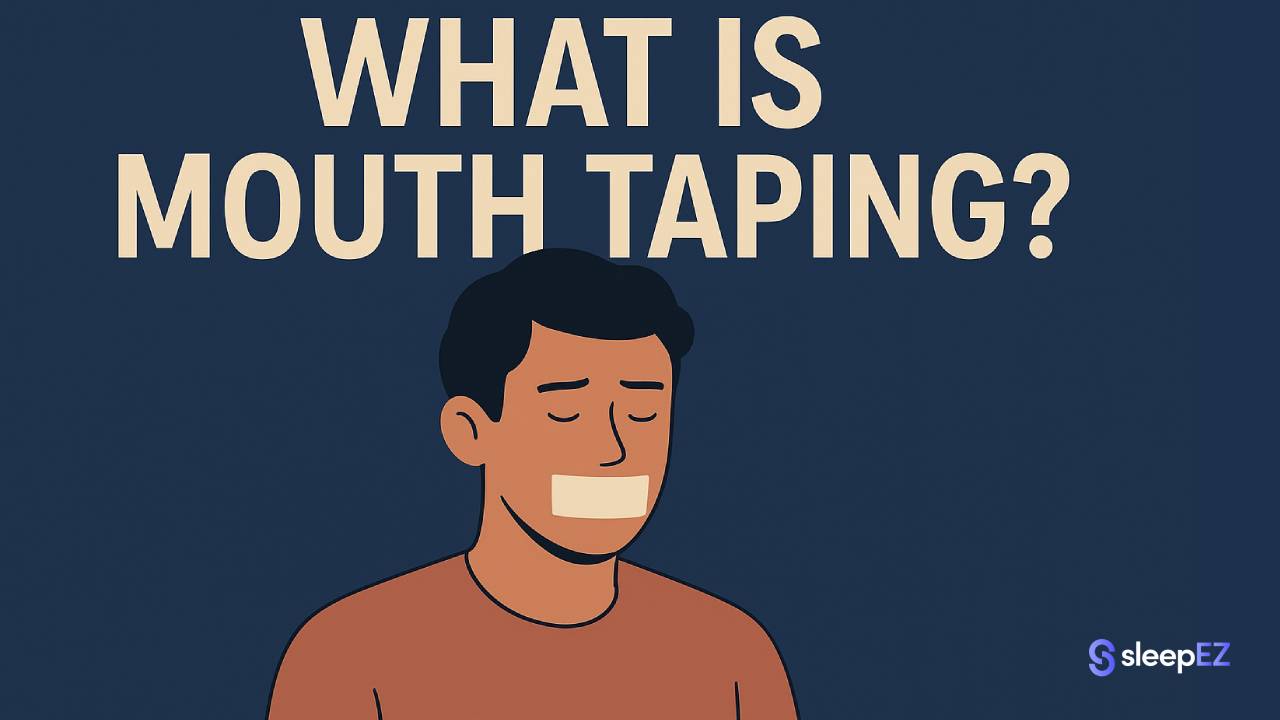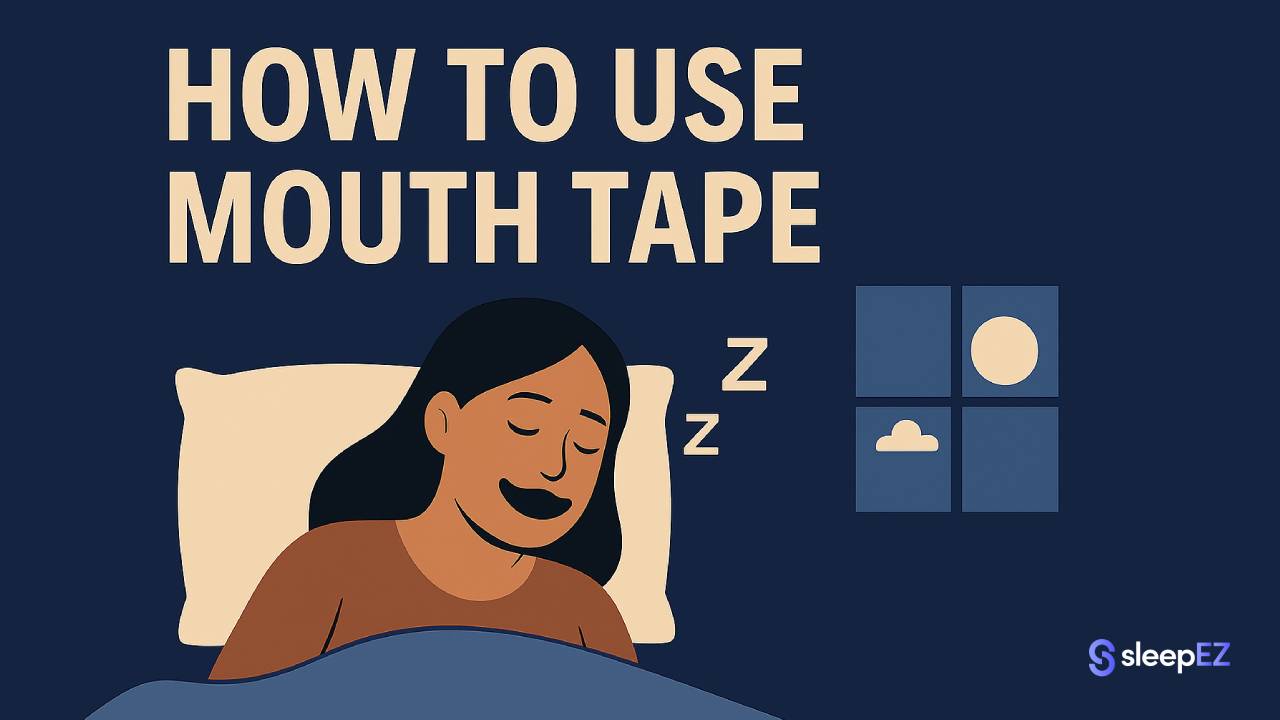The Benefits of Nose Breathing
Your nose does far more than just let air in and out. It's a sophisticated system that optimizes every breath you take:
- Superior Air Filtration: Your nose is a natural filter for dust and allergens. Tiny hairs and mucus trap particles before they reach your lungs, protecting your respiratory system from harmful contaminants.
- Natural Humidification: It warms and moistens air, protecting your lungs. Cold, dry air can irritate lung tissue, but your nasal passages condition each breath to match your body temperature and humidity needs.
- Increased Nitric Oxide: This miracle molecule, produced in the nasal sinuses, improves circulation and oxygen delivery. Nitric oxide helps blood vessels relax, allowing better blood flow throughout your body.
- Improved Oxygen Absorption: Nasal breathing is more efficient, helping you get more oxygen from every breath. The slower, deeper breaths through your nose allow more time for oxygen exchange in your lungs.
- Better Sleep Architecture: Nasal breathing promotes deeper, more restorative sleep phases by maintaining optimal oxygen levels throughout the night.
- Enhanced Focus and Calm: The parasympathetic nervous system activates more easily with nose breathing, reducing stress and improving mental clarity.
This efficiency is why nasal breathing is key to feeling truly rested and energized when you wake up.
The Disadvantages of Mouth Breathing
Mouth breathing creates a cascade of health problems that compound over time:
- Chronic Dry Mouth: The #1 cause of waking up feeling like you've trekked the Sahara. This also leads to bad breath. Your mouth lacks the natural moisturizing systems of your nose, leaving tissues parched and bacteria thriving.
- Increased Snoring: Mouth breathing causes throat vibrations that wreck the vibe for you and your partner. The relaxed jaw and tongue position blocks airflow, creating those disruptive sounds.
- Poor Sleep Quality: It's a major contributor to restless nights and frequent, unnoticed wake-ups that break deep sleep. Your body works harder to get the oxygen it needs, preventing true rest.
- Dental and Gum Problems: Dry mouth creates the perfect environment for harmful bacteria. This leads to cavities, gum disease, and tooth decay at accelerated rates.
- Facial Development Issues: Chronic mouth breathing, especially in children, can alter facial structure over time, affecting jaw alignment and tooth positioning.
- Reduced Athletic Performance: Less efficient oxygen delivery means your muscles and organs don't get the fuel they need for peak performance.
Nose Breathing vs. Mouth Breathing: A Side-by-Side Comparison
| Feature | Nose Breathing | Mouth Breathing |
|---|---|---|
| Filtration | Natural filter removes particles and allergens | No filtration, contaminants enter directly |
| Nitric Oxide | High production improves circulation | Minimal production, poor circulation |
| Sleep Quality | Deeper, more restorative sleep | Fragmented, poor quality sleep |
| Oral Health | Maintains moisture, prevents decay | Dry mouth leads to cavities and gum disease |
| Snoring | Minimal to no snoring | High likelihood of snoring |
| Oxygen Efficiency | Optimal oxygen absorption | Inefficient, shallow breathing |
How to Stop Mouth Breathing
Knowing the benefits is one thing. Actually making the switch is another. Here's how to retrain your breathing habits.
Daytime Practice
Start by becoming aware of your breathing during the day. When you notice yourself breathing through your mouth, close it and breathe through your nose.
Try this simple exercise: sit comfortably, close your mouth, and breathe slowly through your nose for five minutes. Do this several times a day until nasal breathing feels natural.
Address Congestion
If your nose feels blocked, you need to fix that first. Use a saline nasal spray to clear your passages.
If you have chronic congestion from allergies or a deviated septum, see a doctor. You can't breathe through your nose if it's not clear.
The Nighttime Challenge: But what happens when you fall asleep? All that daytime practice can be undone by involuntary mouth breathing. Your conscious mind can't control your breathing when you're unconscious.
Congestion, sleep position, and natural reflexes can all trigger mouth breathing during the night. Even people who breathe through their nose during the day often become mouth breathers while sleeping.
The Solution: This is where a tool designed to support nasal breathing at night becomes essential. A high-quality mouth tape provides a gentle, non-invasive reminder to keep your lips sealed, allowing your body to do what it does best: breathe through the nose.
Mouth tape works by creating a light seal that encourages nasal breathing without restricting jaw movement or causing discomfort. It's not about forcing anything, it's about supporting your body's natural design.
Choosing the Right Tool to Support Nasal Breathing
Not all mouth tapes are created equal. The wrong product can cause skin irritation, fall off during the night, or feel uncomfortable. Here's what to look for:
It Must Be Comfortable: Look for a flexible material that moves with you. Your lips and facial muscles move during sleep, and rigid tape will either come off or cause discomfort. The best options use soft, breathable materials that conform to your lip shape.
It Must Be Secure: It needs to stay on all night, even if you toss and turn. Medical-grade adhesives provide the right balance of strength and gentleness. Cheap tapes often fail when you need them most.
It Must Be Gentle: The adhesive should be hypoallergenic and designed for the sensitive skin on your lips. Look for products that promise no pain and no pulling when you remove them in the morning.
Easy Application: The best mouth tapes are simple to apply correctly, even in dim light. Clear instructions and intuitive design make the difference between success and frustration.
Breathe Mouth Tape is built for this exact purpose. The lip-shaped design fits comfortably and stays secure through the night, even if you move around.
It's made with soft, skin-friendly materials that won't irritate your face. The adhesive is strong enough to keep your mouth gently closed but removes easily in the morning.
Thousands of Australians and New Zealanders use it every night to retrain their breathing and improve their sleep quality.
It's a simple tool that works while you rest, helping your body learn to breathe the way it was designed to.
Take Control of Your Breathing, Transform Your Sleep
The choice between nose and mouth breathing is a choice between good health and unnecessary risk.
Your body has sophisticated systems designed to optimize every breath through your nose. Mouth breathing bypasses these systems and creates problems that compound over time.
Don't let another night of mouth breathing rob you of the deep, restorative sleep your body needs.
Your health, your energy, and your partner will thank you.




Leave a comment
This site is protected by hCaptcha and the hCaptcha Privacy Policy and Terms of Service apply.